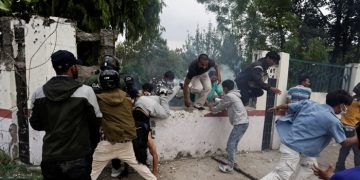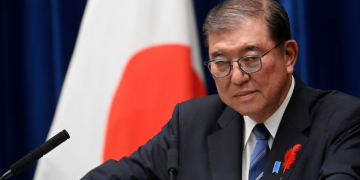LEGALLY SPEAKING Prof. Hrudaya Ballav Das
Social security measures for citizens by the state are necessary for a qualitative existence. These are part of ‘right to life’ guaranteed in our constitution.
==
TEXT
Social Security is a major component of fundamental rights enshrined in the Constitution, under the ‘right to life and liberty’, and both these aspects are inextricably interwoven. Social security measures initiated by the governments are an integral part of social justice in the larger perspective of the social policy framework of a state.
Article-21 mandates that no person shall be deprived of his right to ‘life or personal liberty’ except as per the procedures established by law. Article 41 speaks of the right to work, education and public assistance. Therefore, the state shall, within the limits of its economic capacity and development, make effective provisions for securing individuals’ right to work, right to education and right to public assistance in cases of unemployment, old-age and sickness, disablement and other cases of undeserved want.
Article 42 says the state shall make provision for securing just and humane conditions of work and maternity relief. The seventh schedule in the concurrent list, Item 23, also speaks of social security, insurance, employment etc. Similarly, Item 24 provides for welfare of labour, including conditions of work, provident funds, employer’s liability, workmen’s compensation, invalidity and old-age pension and maternity benefits. These directive principles, although they are not enforceable rights, have specifically elaborated the social security goals in unequivocal terms.
These rights are fundamental to the governance of the country. Therefore those in power cannot treat these provisions lightly. Rather, the state is duty-bound to implement and translate these socio-economic rights into action for welfare of the people. Originally, the right to education was not included as a fundamental right, but later it became so through a Constitution amendment under Article 21(A), based on a judgment of the Supreme Court in the case of Unnikrishnan versus State of Kerala.
Law is a powerful instrument of social development. According to Judge Cardozo, a welfare society is the greatest directive force of law in modem times. The objective of social welfare is to secure for each human being the economic necessities, a decent standard of health and living conditions, equal opportunities in life, and the highest possible degree of self-respect and freedom of thought and action without interfering with the same rights of others.
In pursuance of the directive principles of state policy, the state is called upon to pass social legislation ensuring social and economic justice for the masses. As a consequence, the emergence of new social rights has changed the character of the modern society. The Constitution envisages a special provision for women and children. Priority is given to the interests of the weaker sections of the society. It prohibits trafficking of human beings and immoral trafficking of girls and women.
Still, however, crimes on women are on the increase. This needs to be curbed by condign (deserving) punishment which would go a long way in ensuring protection and security of women. Laws have been passed fixing the working hours of labourers as also minimum wages for them, equal remuneration for men and women and improvement in their working conditions. Various security schemes for them have been launched too.
Efforts have been made to eradicate beggary and ‘undeserved want’. Protective laws have been passed for physically and mentally challenged individuals. A special provision has been made for reformation of juvenile offenders. Legislative measures providing for social security, social defence and social uplift have been adopted. For rural uplift, laws concerning land reform, land ceiling, consolidation, credit facility and debt relief have been passed. Similarly, numerous laws meant for urban development have been passed.
In a case of B. Banerji versus Smt. Anita Pan, the Supreme Court interpreted the provisions of West Bengal Premises Tenancy Amendment Act 1969 in its broad socio-economic objective. Another instance is grant of gratuity in favour of workmen. The Supreme Court, in the case of Straw Board Mfg. Co. Ltd versus Workmen, observed, “Gratuity for workers is no longer a gift but a right. It is a humanitarian expression of distributive justice to partners in production for long meritorious service. Labour law is to be interpreted in the context of the changing socio-economic values. In the case of Banarjee (Supra), the Supreme Court held, “The law is made for the bulk of the community to produce social justice and isolated instances of unintended injury are inevitable martyrs for the common good, since God himself has failed to make perfect laws. The court should adopt that interpretation of statute which tends to obviate unnecessary litigation.
In the case of State Bank versus NS Money, the Supreme Court, keeping in view the socio-economic objectives while imposing cost on defeated party, irrespective of its social and economic status, suggested that this payment be made from a public fund. “In cases like this, where law is not free from obscurity and needs this court’s pronouncement and one of the affected parties is weak, he being a worker, the costs must come out of public funds. The state, we hope, will constitute a suitor’s fund which will take care of the hardships and public interest in the areas of necessary litigation.” All these judgments have opened new vistas for taking social security measures by the State.
It is heartening to note that from Article-21 has sprung up a whole lot of human rights jurisprudence, namely the right to legal aid, speedy trial, the right to means of livelihood, right to live with dignityand privacy, right to health, right to a pollution-free environment and so on. All these rights have come to the surface through a plethora of judgments of the apex court. In the case of Bandhu Mukti Morcha versus Union of India, while affirming the proposition that Article – 21 must be construed in the light of the directive principles of the state policy, the Supreme Court observed that this ‘right to live with human dignity’ enshrined in Article 21 derives its life breath from the Directive Principles of State Policy and particularly from clauses (e) and (f) of Articles 39 and Articles 41 and 42. Therefore, it has included protection of the health and strength of workers, men and women, and of children against abuse, and stressed on the need to provide opportunities and facilities for children to develop themselves in a healthy manner and live in conditions of freedom and dignity, with educational facilities, just and humane conditions of work and maternity relief. These are the minimum requirements which must exist in order to enable an individual citizen to live with human dignity.
In the case of Keshavananda Bharati versus State of Kerala, popularly known as ‘Fundamental Rights Case’, the apex court observed that the fundamental rights and Directive Principles constitute the conscience of the Constitution. To ignore Part IV is to ignore the sustenance provided for in the Constitution, the hopes held out to the nation and the very ideals on which our Constitution is built. In Minerva Mills versus Union of India, the Supreme Court held that Part III and Part IV are like two wheels of a chariot. It observed, “To give absolute primacy to one over the other is to disturb the harmony of the Constitution.” The court further observed, “These rights (fundamental rights) are not an end in themselves, but are the means to an end. The end is specified in Part-IV”.
In the case of LIC of India versus Consumer Education & Research Centre, it has been explicitly stated that social security has been the goal of the founding fathers of the Constitution. The clear-cut directives on the part of the state to implement the policies for social securities are long-term policy guidelines for the executive to carry out the requirements of the masses in a dynamic and developing democracy. The Supreme Court has been very much conscious and active towards the socio-economic and technological dynamism of society.
At the same time, the international developments in jurisprudence and initiatives of international organisations like the United Nations and International protocols have also made significant impact over the judgments pronounced by the courts. Social security is very much a part and parcel of these rights under article 21. In this context, it is necessary to mention that the Human Development Report 2014 issued by the United Nations Development programme (UNDP) made a distressing revelation that India continues to remain in the 135th position among 187 countries in the Human Development Index (HDI). This shows that India has not made any progress with reference to the previous years and we are now placed in the medium human development category along with some of the Asian and African countries. The index ranks countries by the level of development based on the factor of “human well-being”. This is on a wider dimension and more realistic than the “wealth” factor.
HDI is a pointer to the development of a country on three dimensions – long and healthy life of its citizens, their access to knowledge and citizens having a decent standard of living. It is a composite statistics of life expectancy, education and income indices that are used to rank countries in four tiers for human development. Based on the above premise, Article 25 of the Universal Declaration of Human Rights also envisages right standard of living for every individual, that is adequate for the health and well-being of himself and of his family, including food, clothing, housing and medical care and necessary social services and the right to security in the event of unemployment, sickness, disability, widowhood, old age or other lack of livelihood in the circumstances beyond his control.
Article-7 of the International Covenant on Economic and Social Rights equally assures right to everyone to the enjoyment of just and favourable conditions of work which ensures not only adequate remuneration and fair wages but also a decent living to the workers, both for themselves and their families in accordance with the provisions of the Covenant.
In Olga Tellis versus Bombay Municipal Corporation, known as pavement dweller’s case, the Supreme Court held that the ‘right to life’ includes ‘right to livelihood’ because no person can live without the means of livelihood. It is striking to note that International Labour Organization (ILO) Social Security (Minimum Standards) Convention – 1952 (Item No. 102) has laid down the basic minimum standards for social security viz-viz medical care, sickness benefit, unemployment benefit, old-age benefit, employment injury benefit, family benefit, maternity benefit, invalidity benefit and survivors benefit etc, which are measures for an egalitarian social order under Article-21 based on social security measures.
In conclusion, it is the fundamental right of everyone in this country to live with dignity, be free from exploitation. The Supreme Court has pronounced in many decisions that social security measures are a must by the state.






































